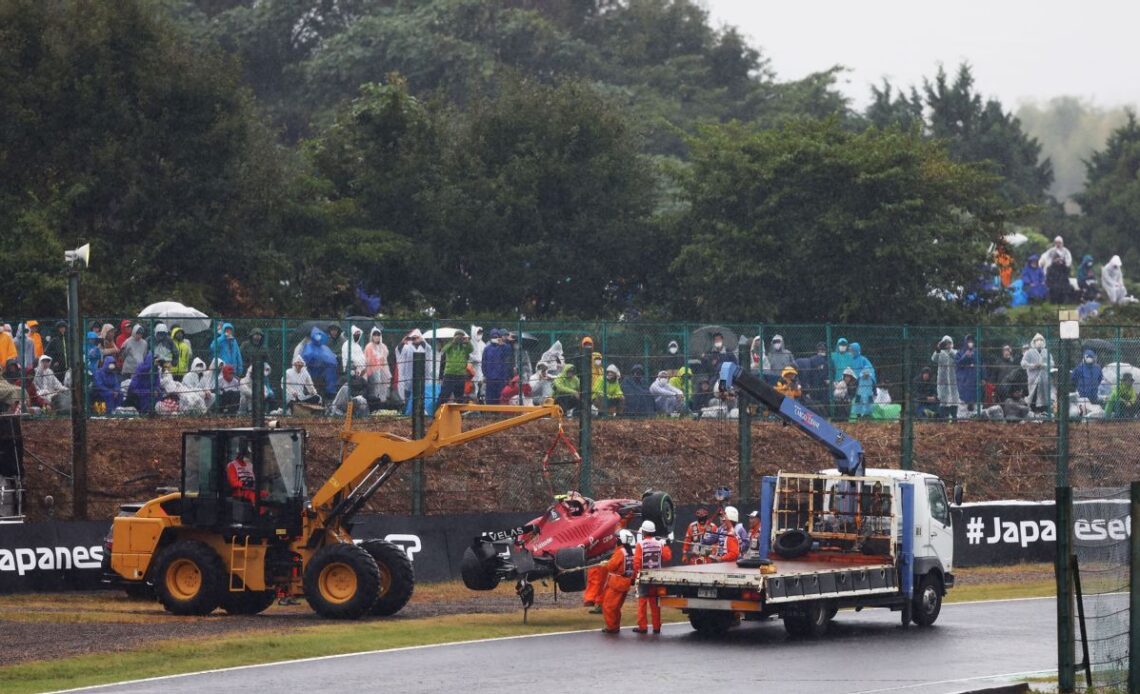The FIA, motor racing’s governing body, has launched an immediate investigation into how Pierre Gasly almost had a 200 km/h collision with a crane during the Japanese Grand Prix.
Gasly was furious with the FIA after he drove past the recovery vehicle in the opening laps while he tried to catch up with the rest of the pack, who were following a safety car.
The French driver passed the vehicle shortly after the race was red-flagged.
Gasly later told the media he had been just 2 metres from being killed at the same circuit where Jules Bianchi had a fatal collision with a crane at the 2014 Japanese Grand Prix.
The incident was widely condemned by other F1 drivers and team bosses, with Christian Horner saying the sport had “got lucky” in avoiding another serious crash.
Appendix H of the FIA’s International Sporting Code states: “No marshal or vehicle shall enter the circuit perimeter without permission from race control.”
The race director on Sunday was Eduardo Freitas, one of the two people who replaced Michael Masi at the start of the year.
Several hours after the race finished, the FIA confirmed it would look into the incident.
The FIA said: “While it is normal practice to recover cars under Safety Car and Red Flag conditions, due to the particular circumstances and also taking into account feedback from of a number of drivers, the FIA has launched a thorough review of the events involving the deployment of recovery vehicles during the Japanese Grand Prix.
“This is part of the common practice of debrief and analysis of all race incidents to ensure continual improvements of processes and procedures.”
Gasly was handed a 20-second penalty and two penalty points for speeding under the red-flag conditions that followed his near miss.
When he visited the stewards later, the French driver admitted he had been driving too fast.
The verdict into his penalty said: “After passing the scene of the incident, car 10 continued under the red flag situation, at speeds which exceeded 200 km/h on multiple occasions, and which reached 251 km/h at one point.
“The driver conceded that he now understood that there could have been marshals or obstacles on the track, and admitted that he was too fast.
“However, in mitigation of penalty, we take into account that although the speed could not by any measure be regarded as ‘slow’ as required in the regulations, it was…
Click Here to Read the Full Original Article at www.espn.com – RPM…

